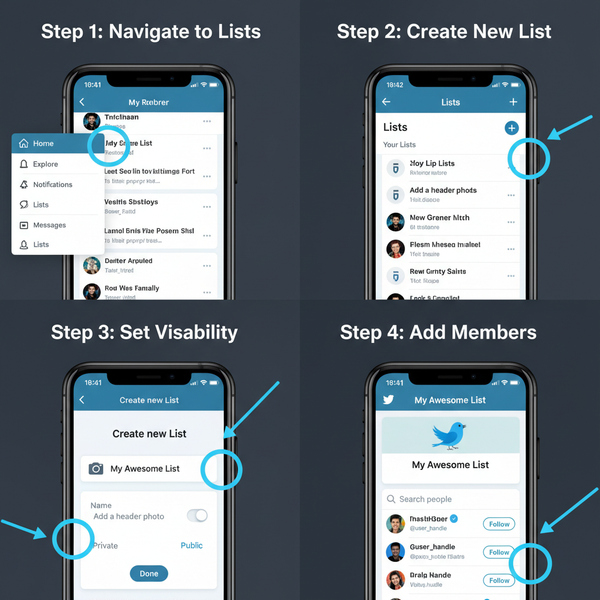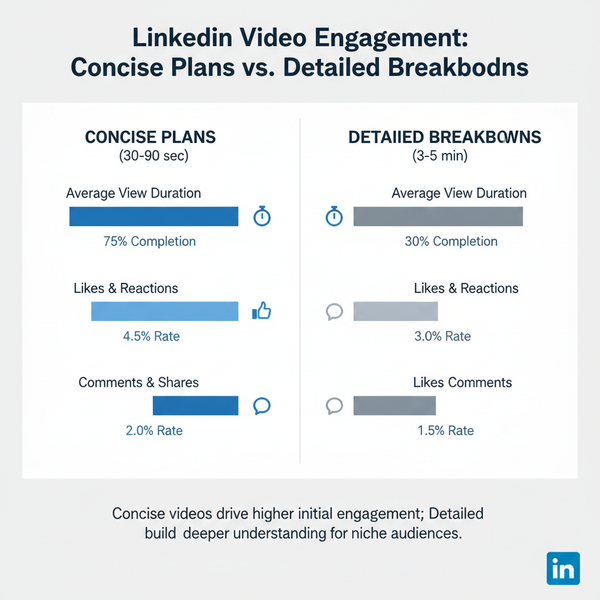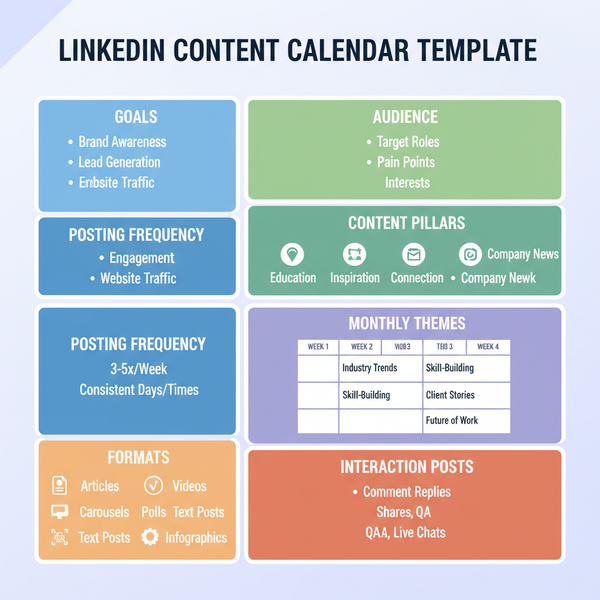How to Create a Successful Joint Post on Social Media
Learn how to plan, create, and execute successful joint posts on social media to boost engagement, expand reach, and grow brand partnerships.
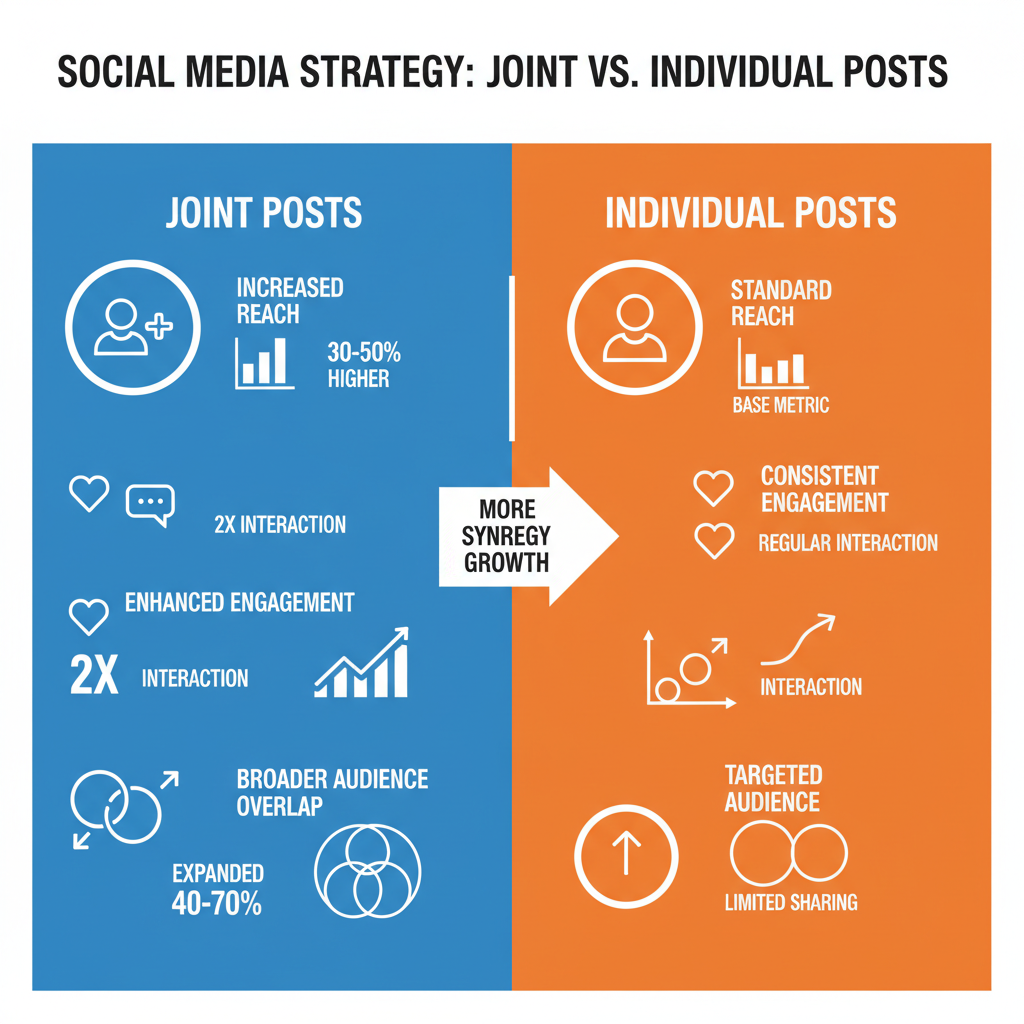
Introduction to Joint Posts in Social Media
A joint post in social media marketing is a collaborative piece of content co-created and shared by two or more accounts to reach wider audiences simultaneously. This approach can dramatically increase engagement, expand reach, and strengthen brand partnerships. By understanding what a joint post is and how to plan it effectively, you can unlock its full potential for your social media strategy.
---
Understanding What a Joint Post Is and Its Benefits
A joint post is content published on social platforms that appears on both collaborators’ feeds or profiles. Each participant benefits from increased visibility and potential follower growth.
Benefits include:
- Expanded reach: Combines the follower base of both collaborators.
- Higher engagement rates: Fresh, cooperative content sparks interest.
- Mutual brand visibility: Increases exposure for all partners involved.
- Credibility boost: Associations with reputable collaborators enhance trust.

When done strategically, joint posts can outperform individual content by leveraging the established trust each partner has built within their niche.
---
Choosing the Right Collaborator
Selecting the right partner determines the success of a joint post. Ideal collaborators should:
- Align in audience demographics: Ensure overlap for mutual relevance.
- Share similar values: Consistency in brand ethos boosts credibility.
- Operate in a complementary niche: For example, a fitness trainer collaborating with a nutritionist.
Avoid partnering solely for reach when audiences have vastly different interests — relevance drives engagement more than numbers.
---
Defining Clear Goals for the Joint Post
Before content creation, agree on clear objectives, such as:
- Brand awareness: Penetrate new market segments.
- Conversions: Drive leads, sales, or specific actions.
- Follower growth: Boost audience numbers for both accounts.
Defined goals streamline creativity and guide key performance indicator (KPI) measurement.
---
Brainstorming Content Ideas for Both Audiences
Your ideas should resonate equally with both audiences. Effective formats include:
- Educational tutorials: Deliver cross-interest value.
- Behind-the-scenes stories: Showcase the collaborative process.
- Interactive challenges: Encourage participatory engagement.
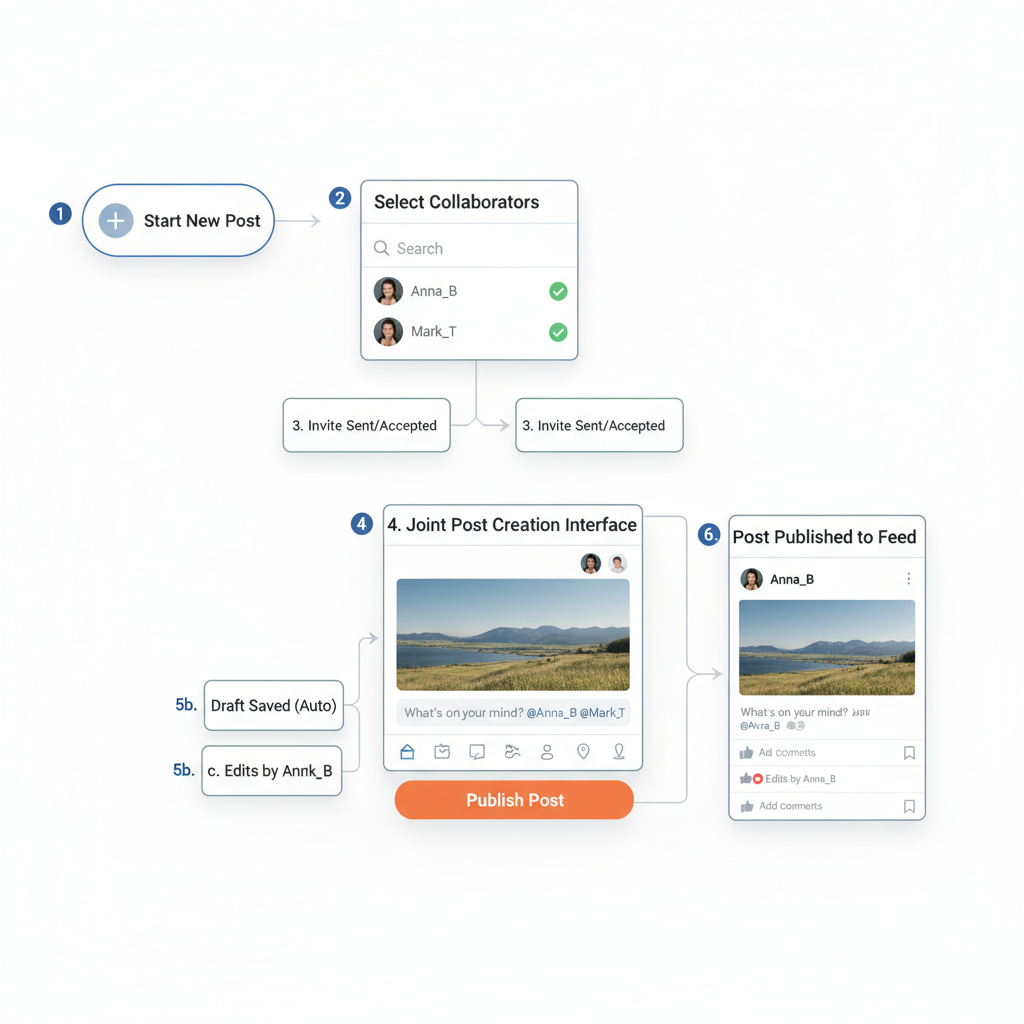
Keep brainstorming collaborative through virtual meetings or shared documents to refine themes and creative resources.
---
Agreeing on Tone, Style, and Messaging
For brand consistency:
- Align on tone (casual, professional, humorous).
- Standardize visual aesthetics (color palettes, fonts).
- Preserve messaging that supports both partners’ values.
Tone mismatch can alienate parts of your audience, so ensure brand harmony from the outset.
---
Planning Visuals and Captions Collaboratively
Visuals significantly influence engagement. Strategies include:
- Maintain consistent branding.
- Use both logos subtly for cohesiveness.
- Feature representatives from each brand.
Captions best practices:
- Hook readers within the first line.
- Deliver clear value or tell a story.
- Include relevant hashtags for discoverability.
- Tag all collaborators to ensure dual visibility.
---
Setting Roles, Responsibilities, and Workflow
Clarify responsibilities to avoid miscommunication:
- Assign visual creation.
- Determine caption writing and editing roles.
- Finalize approval processes.
- Decide who publishes and when.
A joint calendar or project management tool enhances transparency and efficiency.
---
Selecting the Best Platform and Format
Choose a platform based on audience behavior and objectives.
| Platform | Joint Post Feature | Best Use Case |
|---|---|---|
| Co-author post (appears on both profiles) | Visual-heavy collaborations targeting lifestyle and consumer segments. | |
| Page cross-posting or co-branded events | Community-building, event promotion, and wide demographic reach. | |
| Collaboration articles or tagged professional posts | B2B partnerships, thought leadership content, industry insights. |
Select a platform where both accounts are already active and have engaged audiences.
---
Timing Strategy for Maximum Impact
Optimal timing requires understanding when each audience is most active.
Tips:
- Midweek mornings suit professional audiences.
- Evenings/weekends can be better for consumer brands.
- Avoid clashing with major events or competitor campaigns.
---
Cross-Promotion Tactics
To maximize reach, promote before and after publishing.
Before publication:
- Tease via stories or short posts.
- Share behind-the-scenes clips.
- Use countdown posts to build anticipation.
After publication:
- Share follow-up content to sustain interest.
- Respond to comments across platforms.
- Direct followers to related collaborative posts.
---
Monitoring Analytics Together
Both partners should collaboratively analyze results. Key metrics:
- Reach and impressions.
- Engagement rates (likes, comments, shares).
- Follower growth.
- Click-through rates or conversions.
Create a shared report to plan future strategies.
---
Following Up with Additional Collaborative Content
Leverage successful collaborations for ongoing engagement:
- Develop a follow-up series.
- Conduct seasonal joint campaigns.
- Explore deeper partnerships like product launches or events.
Consistency reinforces audience trust and partner relationships.
---
Common Mistakes to Avoid
Steer clear of these pitfalls:
- Mismatched branding: Leads to confusion.
- Unclear terms: Causes workflow issues.
- Neglecting analytics: Misses opportunities for improvement.
- Over-promotion: Risks audience fatigue and loss of trust.
---
Long-Term Strategy for Building Audience via Repeated Joint Posts
To sustain growth from joint posts:
- Schedule collaborations regularly (quarterly or bi-annually).
- Diversify formats to maintain interest.
- Expand to additional partners in aligned niches.
- Apply lessons learned from past campaigns to future content.

Consistent and strategic joint posts strengthen brand authority, foster loyal communities, and open doors to new opportunities.
---
Summary and Next Steps
Joint posts amplify reach, boost engagement, and increase credibility across social media platforms. Success depends on alignment of goals, tone, and audience relevance, combined with a collaborative approach to planning and execution. Whether you focus on Instagram, Facebook, or LinkedIn, start building relationships with potential partners today — and set the stage for powerful collaborative content that grows your brand.

